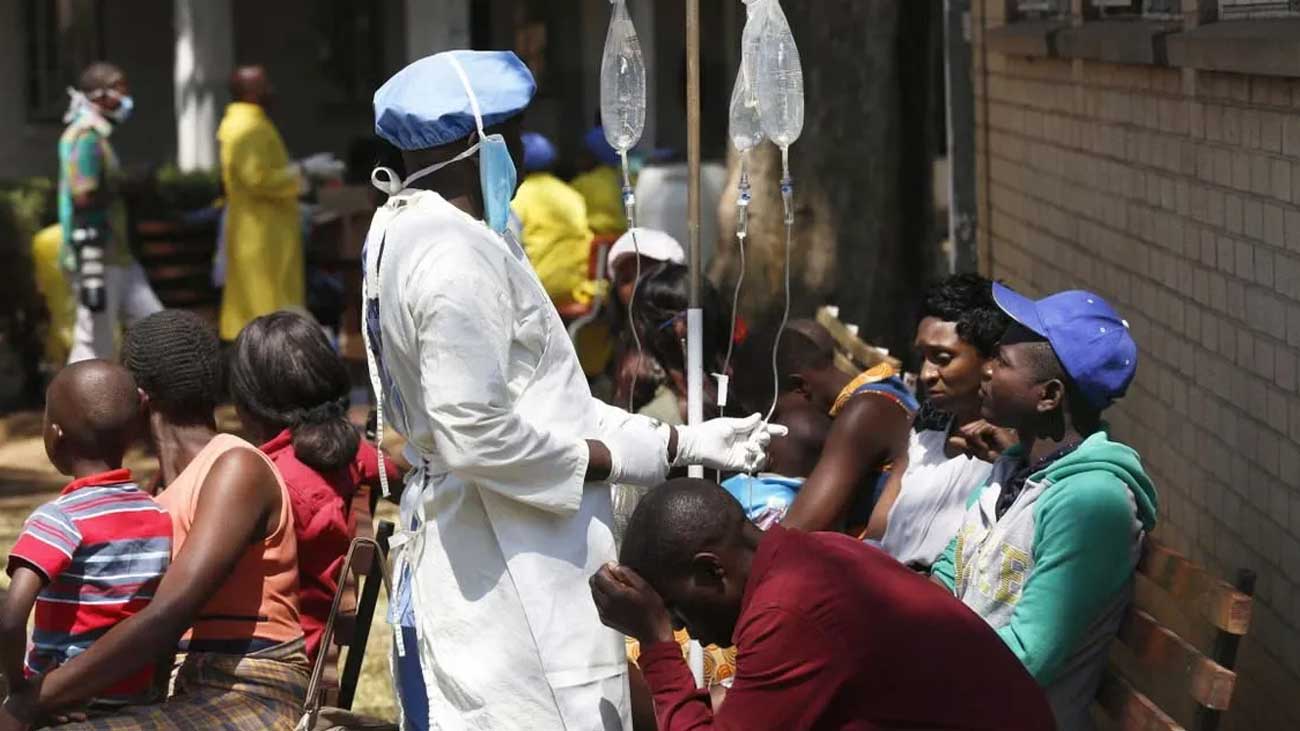
Zimbabwe’s capital, Harare, has been placed under a state of emergency due to a widespread cholera outbreak causing numerous fatalities nationwide, announced the city’s mayor on Friday.
The city of Harare, with a population of 1.5 million, has been significantly impacted by a disease outbreak that has spread across all provinces of the Southern African nation.
“We have declared a state of emergency because the situation is now very bad,” Harare Mayor Ian Makone told media.
“The disease is spreading across the city.”
Since the outbreak was reported in February, Zimbabwe has documented over 7,000 suspected cases of cholera and nearly 150 deaths, with 51 confirmed through laboratory tests.
At least 12 people have died in Harare.
In Zimbabwean cities, cholera outbreaks are a recurring issue due to inconsistent supplies of drinking water, inadequate sanitation facilities, and collapsed infrastructure resulting from years of neglect.
This illness stems from a bacterium typically transmitted through the consumption of contaminated food or water.
“People have dug wells close to pit latrines, especially in mushrooming settlements and other suburbs which do not have running water. This means their drinking water is contaminated,” Makone said.
Certain officials have drawn parallels with the situation in 2008, a year when cholera resulted in the loss of a minimum of 4,000 lives in Zimbabwe, affecting over 100,000 individuals who fell ill.
During the peak of the country’s economic crisis, the previous outbreak occurred, leading to the closure of numerous public hospitals due to medication shortages and the departure of health workers seeking opportunities abroad.
Makone highlighted that local authorities, in collaboration with the health ministry and humanitarian organizations, have united efforts to increase the water supply in affected regions twofold and initiate awareness campaigns.
Earlier this year, the United Nations reported a global resurgence of cholera since 2021, marking a reversal after a decade of consistent decline in cases.
